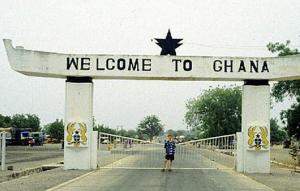Digitization of customs procedures in Africa lagging behind – ECA
 The Coordinator of the African Trade Policy Centre (ATPC), at the Economic Commission for Africa (ECA), Mr David Luke, has said that progress in digitalization or paperless trade facilitation is limited across Africa though most countries have made great progress in general trade facilitation reforms.
The Coordinator of the African Trade Policy Centre (ATPC), at the Economic Commission for Africa (ECA), Mr David Luke, has said that progress in digitalization or paperless trade facilitation is limited across Africa though most countries have made great progress in general trade facilitation reforms.
Speaking at the first African Union Forum on Trade Facilitation for Customs Experts in Congo, Brazzaville, Mr. Luke cited the findings of a 2015 ECA survey and said that “while no evidence of resistance to the utilization of Information and Communications Technology (ICT) was found, African countries are however prioritizing institutional reforms and putting physical infrastructure in place”.
In a statement copied to ghanabusinessnews.com, the ECA said that a survey has identified a lack of infrastructure, such as risk-management technology and scanners, and the incapacity of authorized operators such as freight carriers for fulfilling various procedural requirements.
It also categorised financing constraints for institutional support and equipment as another challenge, followed by insufficient coordination between government agencies and effective political oversight.
Mr. Luke, according to the statement, pointed out that trade facilitation and the removal of non-tariff barriers will be critical for boosting intra-African trade and ensuring the success of the Continental Free Trade Area (CFTA).
“Despite encouraging progress in formalities such basic customs and other border facilitation reforms, there remains much to be done to enhance trade facilitation in Africa”, Mr. Luke was quoted as saying.
African states are encouraged to improve procedures for cross-border trading because reforms to customs procedures deliver the most benefits in terms of reducing trade costs.
Upgrading transport infrastructure was the next most effective reform, followed by other border agency reforms.
The ECA said its survey, widely distributed to government officials, economic institutions, the private sector, academia and development partners, also showed that some of the measures needed to fix the problems do not require much resources other than a systematic approach to institutional and procedural reform
To overcome some of the challenges, Mr. Luke indicated, “regular consultations with the private sector were found to help to maintain momentum for policy and institutional reform.” He reminded delegates that regional economic institutions and corridor management institutions have a key role to play in setting regional standards and best practices.
“Given that resource constraints are an important challenge to implementing trade facilitation measures, it seems important to focus scarce resources on implementing those trade facilitation measures that are likely to have the greatest impact. Trade facilitation and investments in infrastructure cannot be separated; improved investment in hard infrastructure is a prerequisite for trade facilitation to succeed”, Mr Luke said.
Another obstacle to the implementation of trade facilitation measures, such as harmonised documents and regulations, was a lack of coordination between agencies rendering an uneven implementation across countries.
By Emmanuel Odonkor
